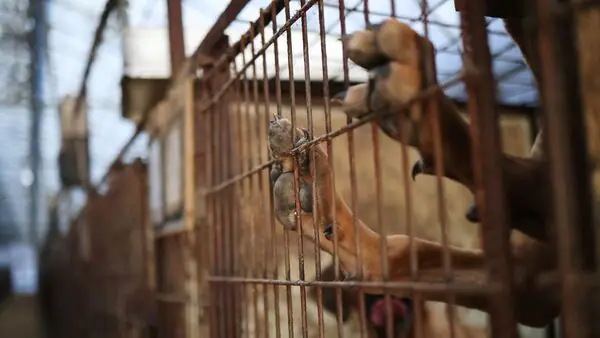
South Korea Bans Dog Meat Industry, But Questions Linger Over Fate Of Half A Million Dogs: Report
However, the ban has also raised a difficult question: what happens to the estimated hundreds of thousands of dogs currently being raised for consumption?
Also Read | Dog Meat Will Be Off the Menu in South KoreaAccording to a BBC report, while the move marks the beginning of the end for a centuries-old practice, it has left both dog meat farmers and animal welfare groups facing uncertainty. As per data from South Korea's Ministry for Food, Agriculture, Forestry and Fisheries, more than 520,000 dogs were being raised on 1,156 farms as of 2022. Nearly 388,000 dogs were consumed annually across 1,666 restaurants.
While public attitudes towards dog meat have shifted dramatically in recent years, with a 2023 Gallup poll showing only 8% of South Koreans consumed dog meat in the past year (down from 27% in 2015), the logistical and ethical challenges of phasing out the industry remain complex.
Animal rights groups have welcomed the move. JungAh Chae of Humane Society International Korea described the law as“history in the making.” Yet, rescue organisations are now racing against time to rehome dogs that would otherwise face abandonment or euthanasia.
Also Read | South Korean shares climb as tech rally revives on AI, crypto optimismDog meat farmers, meanwhile, are voicing deep concern. Some, like Mr. Chan-woo-who joined the trade a decade ago-say the industry is now in“complete limbo,” as they await clarity on government compensation or transition support. Others, including Mr. Joo, fear that without concrete assistance, the pressure could lead to desperate outcomes.
The legislation has also sparked resistance from those who see the move as government overreach into personal dietary choices. While younger generations increasingly view dogs as family members, others argue that the law undermines cultural tradition.
Also Read | Automakers boost South Korean shares higherThe South Korean government has promised support for farmers and businesses affected by the ban, but details remain limited. As the 2027 deadline draws closer, activists say the real test lies not just in enforcement, but in ensuring that the dogs caught in the middle are not forgotten.
Legal Disclaimer:
MENAFN provides the
information “as is” without warranty of any kind. We do not accept
any responsibility or liability for the accuracy, content, images,
videos, licenses, completeness, legality, or reliability of the information
contained in this article. If you have any complaints or copyright
issues related to this article, kindly contact the provider above.


















Comments
No comment